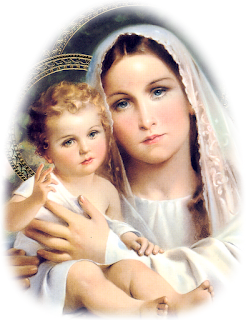Upholding Church teaching and traditions is pastoral care for family, humanity and to the universe: Models of Pastoral care for families
Upholding Church teaching and tradition is pastoral care for family, humanity, and to the universe
Church teachings, tradition, and scripture are not human inventions and they are not amenable for human manipulation. They are the gifts from the holy Trinity. Church traditions are not just history but lived faith archives and models of faith which are laid upon Jesus crucifixion, death, resurrection, ascension, and descending of holy Spirit. Church traditions also composite of life testimonials of models of faith, which are based upon divine intervention and human obedience by response to call, sacrifices, repentance, penance, martyrdom of many kinds, and communion life of saints and lives of human families. Church traditions are the foundations from the lived practices of faith not just written historical documents, but that are based upon the good news of Scripture, theology, and doctrines, but also the treasures of practicing in obedience to the Holy Spirit. Church traditions are the testament handwork of God in human, which serve as models of faith. Church tradition does matter in which the past guides the present and present sets stage for future. Upholding church teaching and traditions is a service to the families and humanity and it is pastoral care for the families, as the church teaching helps ordinary people or any people or entire universe to discern right from wrong, which is the moral teachings, and it is pastoral care. Families need pastors, priests, bishops, religious, and deacons, who would uphold church teachings and traditions to guide them, which is the pastoral care.https://www.youtube.com/watch?v=jtFb0G6DuPk
Let us Repent
https://www.youtube.com/watch?v=VX2NZTcqreY
https://www.youtube.com/watch?v=RsiBNXlT5j4
PORTUGUESE INDIA, 1946, the 3rd centenary de Brito's birth, Scott 467
Surcharged as a postage due stamp in 1951, Scott J43-44
(design based on a drawing of Albert Sousa)
John de Brito was of Portuguese nobility and the son of a governor of Brazil. He entered the Jesuits in Lisbon in 1662, was ordained in 1673, and left that year for the mission in India. He worked mostly in Madura. At the time Christians belonged mostly to the lower castes. John aimed at converting the higher castes, the better to establish Christianity in the region, and to do so he became a pandaraswami, an Indian ascetic, who could approach all castes. He adopted the appropriate dress and life style of such an ascetic, one of the first of the Jesuits missionaries to do so. One of his converts, Prince Tadaya Theva, upon becoming Christian put aside all his wives except one. One of the rejected wives complained to her uncle, the raja of Marava who eventually had Brito executed.(design based on a drawing of Albert Sousa)
https://www.youtube.com/watch?v=-XuSdhSgolo
PORTUGUESE INDIA, 1946, the 3rd centenary de Brito's birth, Scott 467
Surcharged as a postage due stamp in 1951, Scott J43-44
(design based on a drawing of Albert Sousa)
Surcharged as a postage due stamp in 1951, Scott J43-44
(design based on a drawing of Albert Sousa)
John de Brito was of Portuguese nobility and the son of a governor of Brazil. He entered the Jesuits in Lisbon in 1662, was ordained in 1673, and left that year for the mission in India. He worked mostly in Madura. At the time Christians belonged mostly to the lower castes. John aimed at converting the higher castes, the better to establish Christianity in the region, and to do so he became a pandaraswami, an Indian ascetic, who could approach all castes. He adopted the appropriate dress and life style of such an ascetic, one of the first of the Jesuits missionaries to do so. One of his converts, Prince Tadaya Theva, upon becoming Christian put aside all his wives except one. One of the rejected wives complained to her uncle, the raja of Marava who eventually had Brito executed.

Comments
Post a Comment